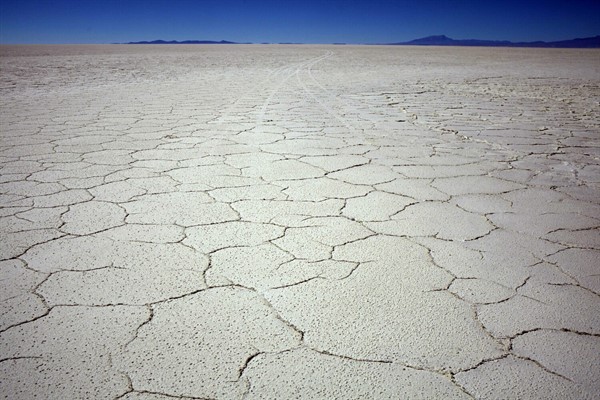LA PAZ, Bolivia—With the swearing-in of Chilean President Gabriel Boric last month, the three countries of Latin America’s so-called lithium triangle—Chile, Bolivia and Argentina—all have leftist leaders who want their governments and citizens to benefit more from the extraction of their countries’ natural resources. At first glance, this could present an opportunity for the three countries to push for the creation of an OPEC-style price-setting cartel for lithium. They are all rich in the coveted resource, and there has been speculation about them banding together to form such an organization for years. But key differences between the oil and lithium industries make this a far-fetched prospect.
Lithium is vital for the batteries that will power the green energy transition, and demand for it is soaring. From January 2021 to January 2022, the price of lithium carbonate increased fivefold. Combined, Argentina, Bolivia and Chile possess 56 percent of the world’s known lithium resources. Now that there is a degree of political alignment among their leaders, some officials and many commentators have revived the idea of forming a lithium cartel, in the vein of the Organization of the Petroleum Exporting Countries, which coordinates the production of oil by members states in order to manipulate its price in the market.
OPEC is not the only commodity pact the world has seen—but it has had the most significant and longest-lasting impact on the global economy. This reflects the special nature of oil as a commodity, as well as the very particular context in which OPEC was born.

